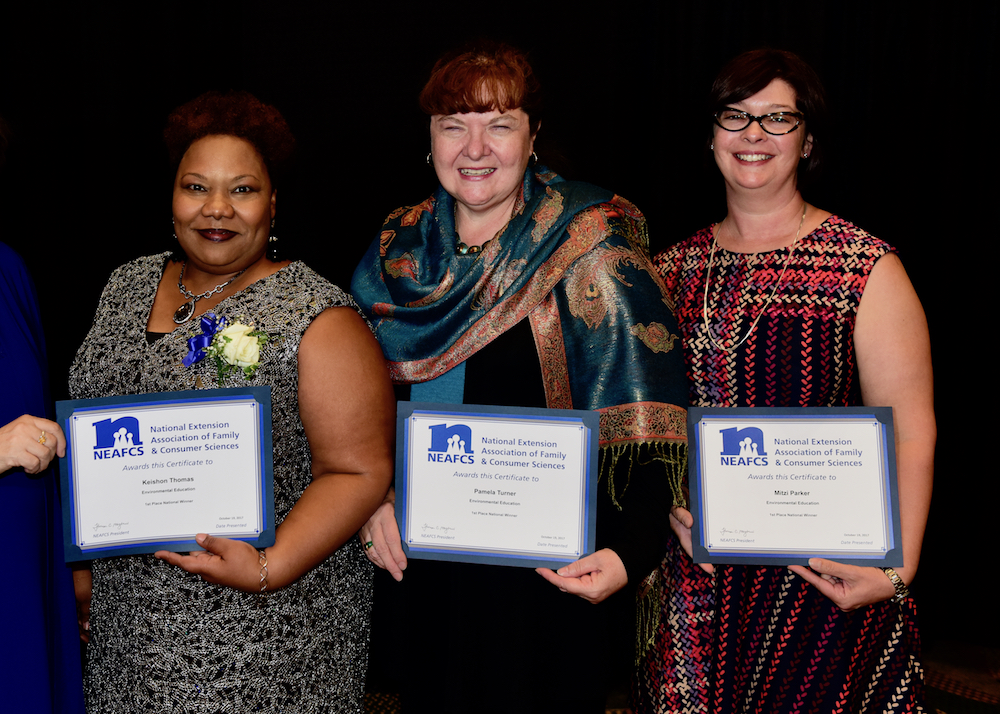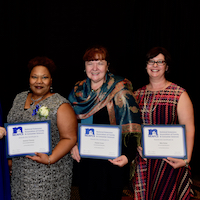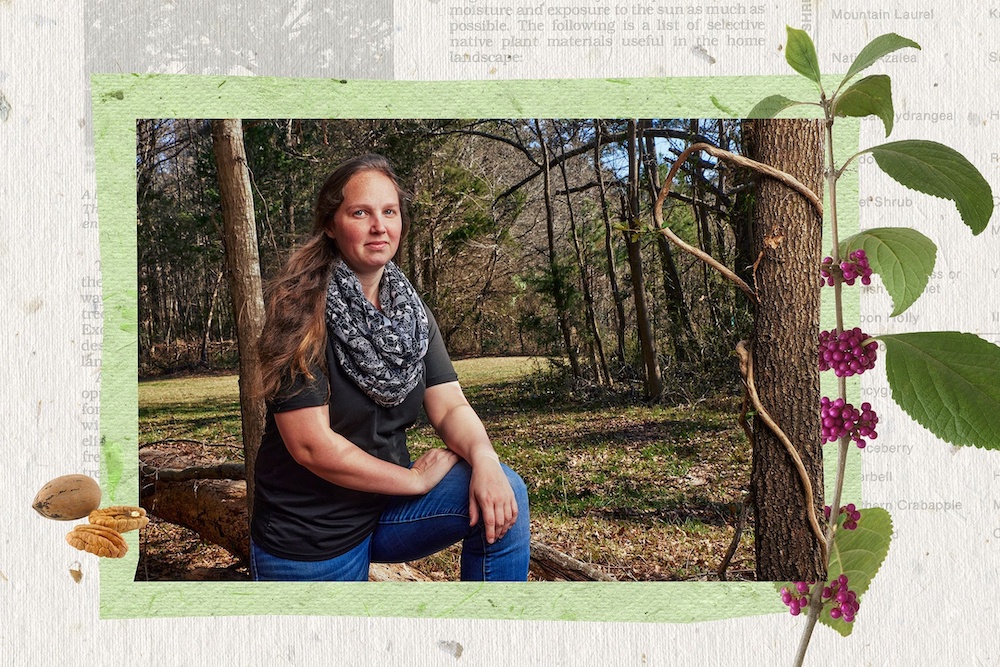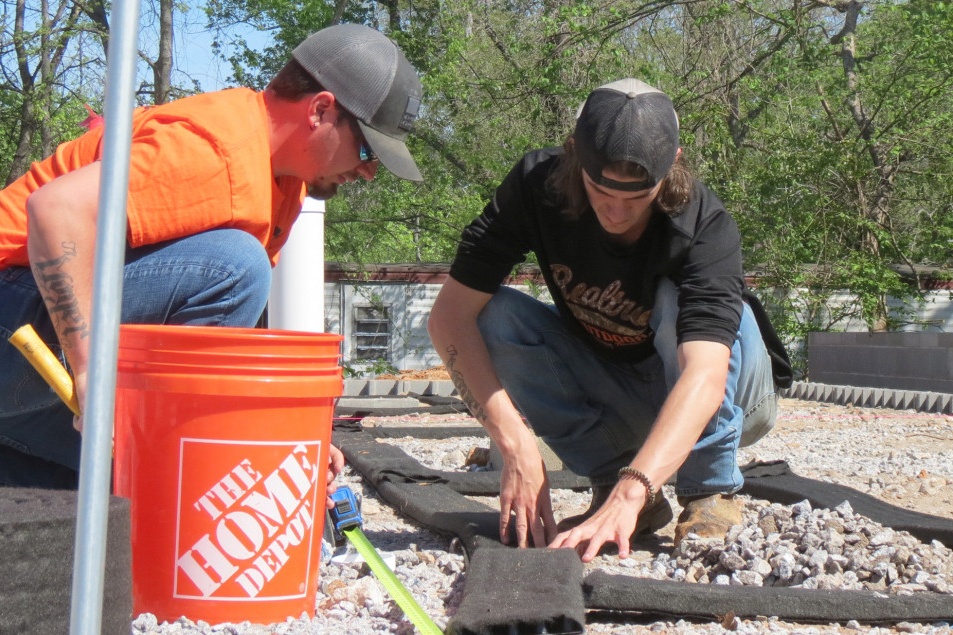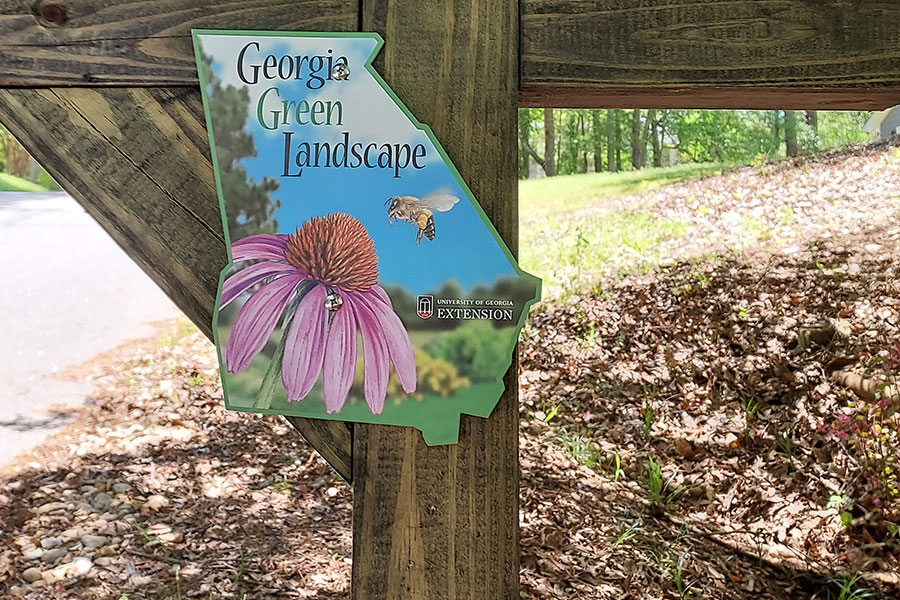A team of University of Georgia family and consumer sciences experts has earned a national award for their efforts to create healthier and safer environments for children, both at home and in daycare settings.
UGA Family and Consumer Sciences Extension agents Keishon Thomas and Mitzi Parker and Extension Housing Specialist Pamela Turner were honored at the 2017 National Extension Association of Family and Consumer Sciences (NEAFCS) annual session in Omaha, Nebraska, on Oct. 19. They received the National and Southern Region Environmental Education Award for their work with the Rural Georgia Healthy Housing Advisory Board. The award recognizes NEAFCS members for outstanding educational programs conducted for families and/or communities on various environmental issues concerning water quality, air quality, recycling and natural resource conservation.
“Rural Georgia Healthy Housing Advisory Board members focus on improving knowledge about how to make changes to the indoor environment that improve health,” said Turner, who is also an associate professor in the Department of Financial Planning, Housing and Consumer Economics in the UGA College of Family and Consumer Sciences. “Extension agents provide programs for childcare providers and parents on reducing asthma triggers and poisoning hazards. This has led to action steps that result in healthier and safer environments for children.”
According to the National Human Activity Pattern Survey, Americans spend about 90 percent of their time indoors, and almost 70 percent of their time in a home. However, substandard living conditions and small nuances in the cleanliness of homes can result in respiratory illness, reproductive issues, neurological disorders and accidental injuries.
The Rural Georgia Healthy Housing Advisory Board works to increase awareness of the dangers lurking in Georgia homes. Since 2013, the board has promoted healthier and safer housing conditions in Georgia, particularly for low-income, children, elderly, minorities and other vulnerable populations living in rural communities. The board prioritizes educating parents and childcare providers about reducing exposure to environmental contaminants and hazards in childcare centers.
Board members include representatives from the Georgia Department of Public Health, the U.S. Environmental Protection Agency, the U.S. Department of Agriculture, the U.S. Department of Housing and Urban Development, Houston County Habitat for Humanity, SupAid Community Resources and AT&T Pioneers. For the past two years, the board has partnered with the Georgia Healthy Housing Coalition to provide a healthy homes booth at the Georgia National Fair in Perry.
“Each year, thousands of people are reached with a message about how they can make their home a safer and healthier place for themselves and their families, Turner said. “A healthy home is one that provides a safe, sufficient and sanitary living space in order to prevent disease and injury.”
To make your home healthier, follow these tips from UGA Extension:
- Keep your home dry. Moisture creates mold and moist conditions create a welcoming environment for pests. Mold and pests can cause respiratory problems for humans and structural damage to homes.
- Keep your home clean. This means less clutter and more clean surfaces for you and your family. Reduce the amount of dirt inside. Dirt tracked inside from outdoors can contain lead dust, pollen, pesticides, insect fragments, and other irritating and dangerous contaminants.
- Keep your home ventilated. A well-ventilated home means better air quality, which means reduced exposure to mold, carbon monoxide, allergens and other contaminants.
- Keep your home safe. According to the Centers for Disease Control and Prevention, falls are the leading cause of unintentional death in homes, followed by poisoning, choking, drowning and fire. Most falls can be prevented by reducing clutter and tripping hazards, and taking steps to childproof and pet-proof your home.
- Keep your home free of contaminants. Some common dangerous contaminants that may be found indoors are radon, lead and carbon monoxide (CO). The effects of exposure can be life-altering or even fatal. The only sure way to keep your family safe from these contaminants is to get your home tested or, for CO, install an alarm.
More information and tips can be found at www.georgiahealthyhousing.org.

